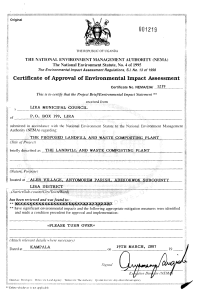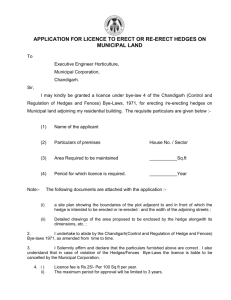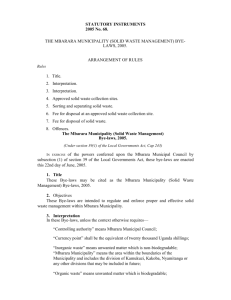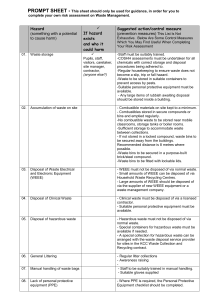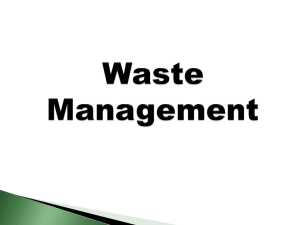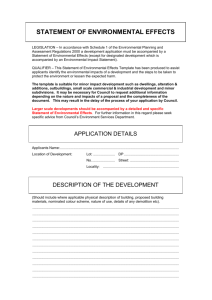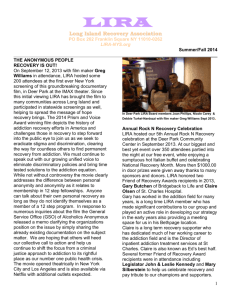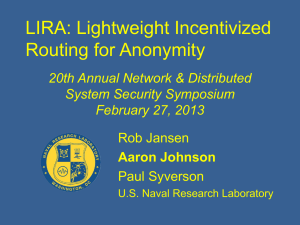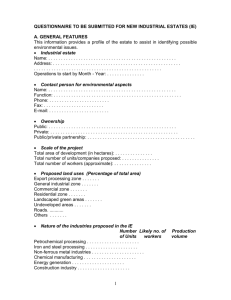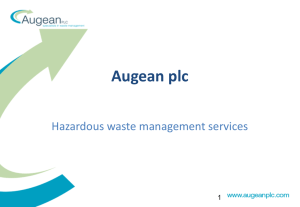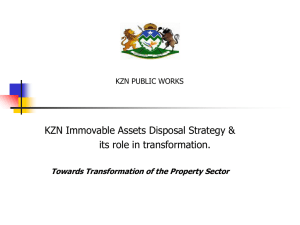si-15
advertisement
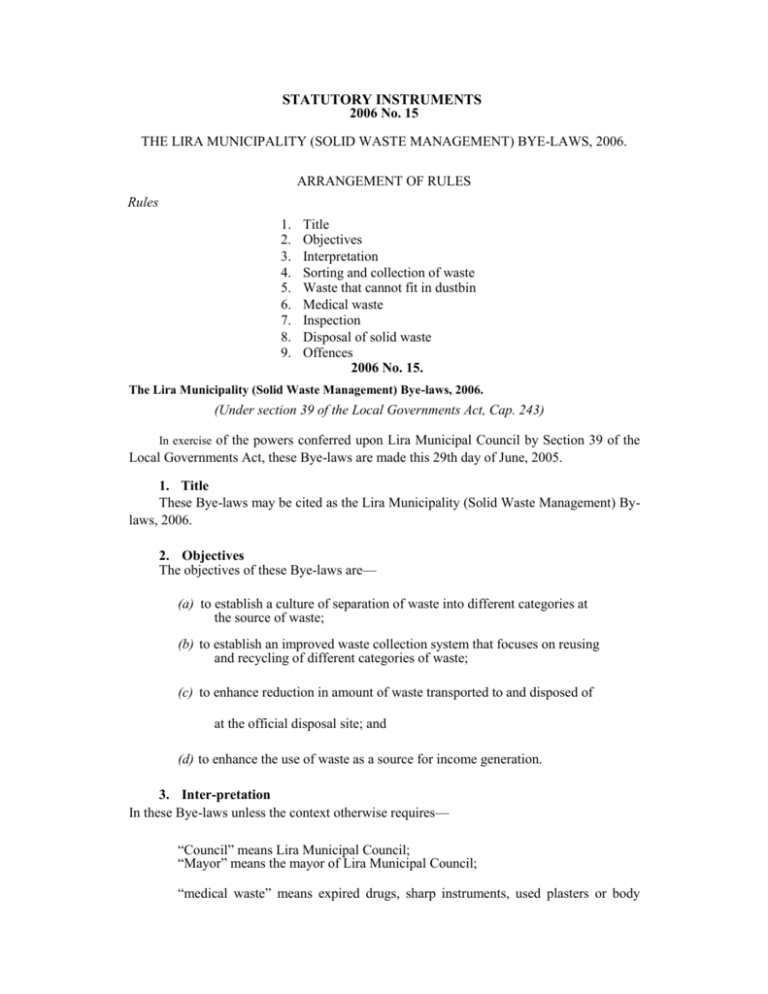
STATUTORY INSTRUMENTS 2006 No. 15 THE LIRA MUNICIPALITY (SOLID WASTE MANAGEMENT) BYE-LAWS, 2006. ARRANGEMENT OF RULES Rules 1. 2. 3. 4. 5. 6. 7. 8. 9. Title Objectives Interpretation Sorting and collection of waste Waste that cannot fit in dustbin Medical waste Inspection Disposal of solid waste Offences 2006 No. 15. The Lira Municipality (Solid Waste Management) Bye-laws, 2006. (Under section 39 of the Local Governments Act, Cap. 243) In exercise of the powers conferred upon Lira Municipal Council by Section 39 of the Local Governments Act, these Bye-laws are made this 29th day of June, 2005. 1. Title These Bye-laws may be cited as the Lira Municipality (Solid Waste Management) Bylaws, 2006. 2. Objectives The objectives of these Bye-laws are— (a) to establish a culture of separation of waste into different categories at the source of waste; (b) to establish an improved waste collection system that focuses on reusing and recycling of different categories of waste; (c) to enhance reduction in amount of waste transported to and disposed of at the official disposal site; and (d) to enhance the use of waste as a source for income generation. 3. Inter-pretation In these Bye-laws unless the context otherwise requires— “Council” means Lira Municipal Council; “Mayor” means the mayor of Lira Municipal Council; “medical waste” means expired drugs, sharp instruments, used plasters or body STATUTORY INSTRUMENTS tissues; “solid waste” means any disposable physical material deposited into the environment in volume, composition or manner as to cause an alteration of the environment; “stakeholder” includes individuals, households, institutions, public offices, community based organisations, non government organisations, business institutions and traders. 4. Sorting and collection of waste (1) Every stakeholder shall sort and separate solid waste into— (a) biodegradable waste such as vegetable waste and food remains; and (b) non biodegradable waste such as paper material, polythene, metal, plastics or broken bottles; (2) Biodegradable waste shall be collected in green bins. (3) Non biodegradable waste shall be collected in red bins. (4) The Council shall prescribe the specifications of the bins. 5. Waste that cannot fit in dustbin. Waste that cannot fit in a dust bin shall be collected as follows— (a) metal scraps shall be collected separately and taken to a scrap yard and iron should be isolated from aluminium; (b) construction debris shall be collected separately and disposed off in a separate gazetted place; and (c) saw dust shall be collected separately and disposed off in a gazetted place. 6. Medical waste Medical waste shall be disposed off in incinerators or pits located in places gazetted by the Council and shall not be disposed together with ordinary waste. 7. Inspection The Council shall conduct regular inspection to ensure compliance with these Byelaws and shall require stakeholders among others, to provide reports as to their compliance. 8. Disposal of solid waste (1) Solid waste shall be disposed off in a manner specified in these Bye-laws and consistent with provisions of the National Environment Act, Cap. 153. (2) Every stakeholder shall pay a fee for the disposal of solid waste. (3) The Council shall prescribe the fee for disposal of solid waste and may give concessions to special community groups characterised by extreme poverty or vulnerability. 9. Offences. (1) Any person who— (a) fails to manage solid waste as specified in bye-laws 4, 5, and 6; (b) fails or refuses to pay the prescribed solid waste disposal fee, commits an offence and is liable, on conviction, to a fine not exceeding two currency points or to imprisonment not exceeding three months or both. (2) The Council may in addition to the penalty imposed under paragraph (1) require the stakeholder to restore the environment to what it was before the wrong was committed. Passed under the common seal of Lira Municipal Council, this 29th day of June, 2005. PAUL OGWAL-OLULE, Chairperson, Lira Municipal Council.
